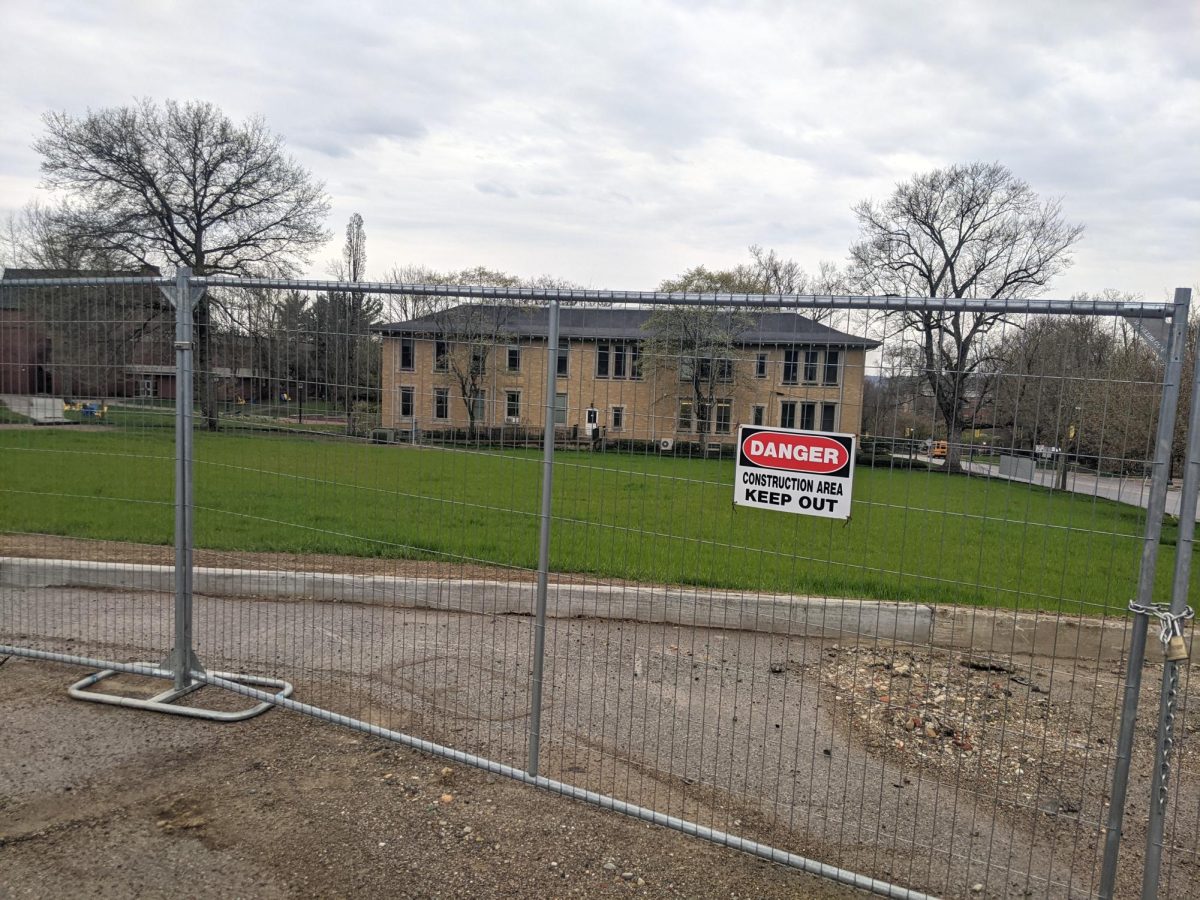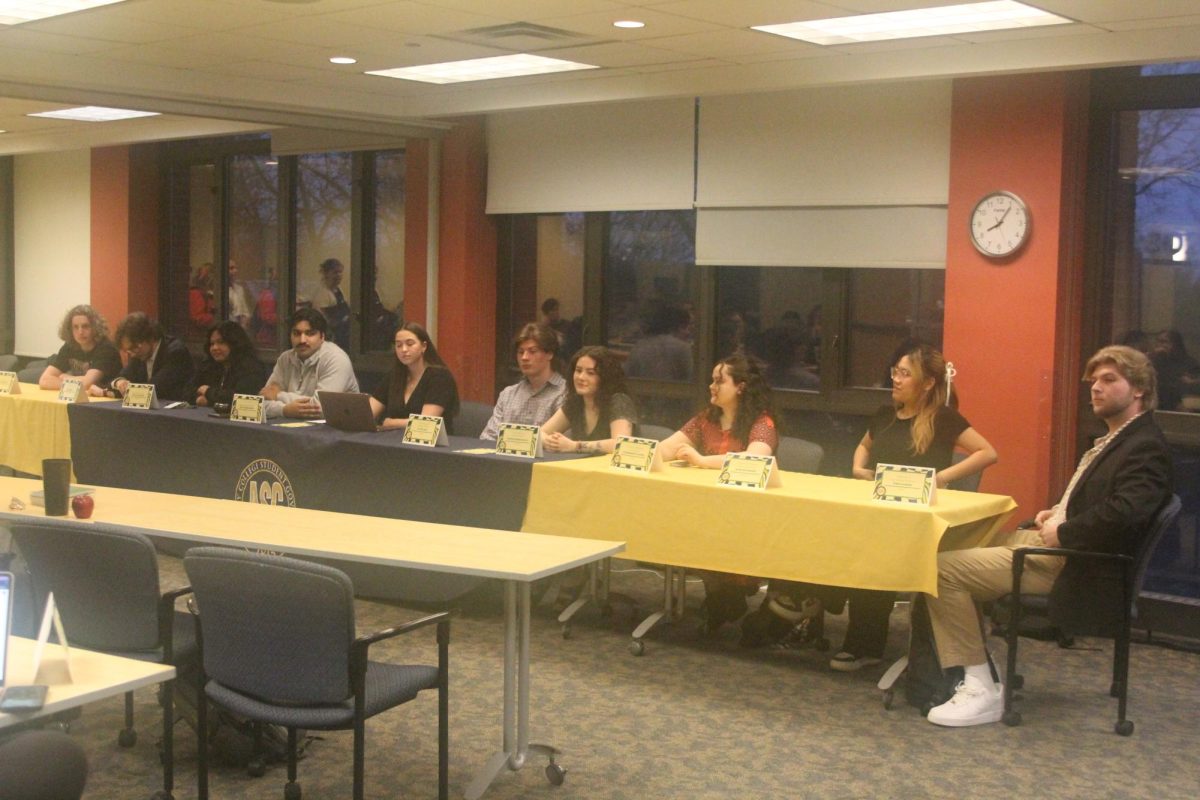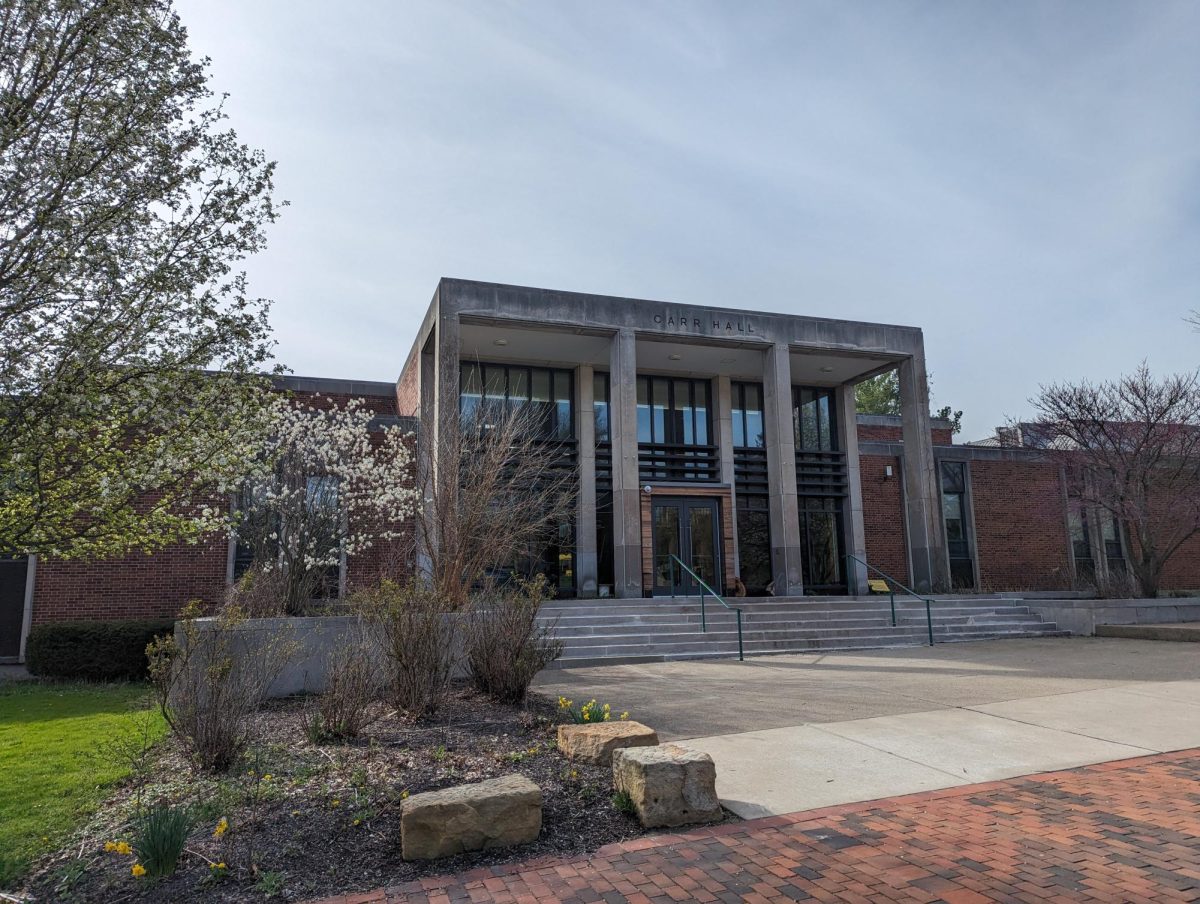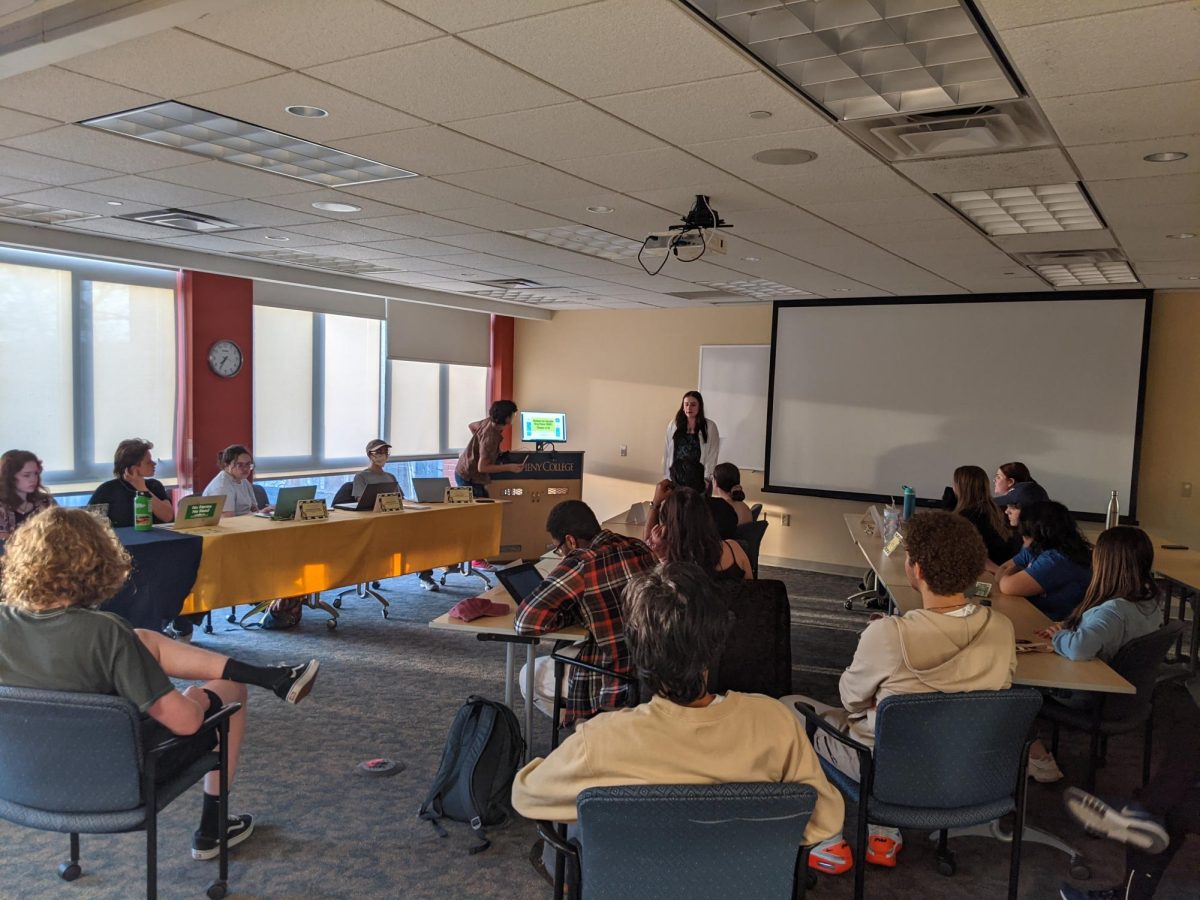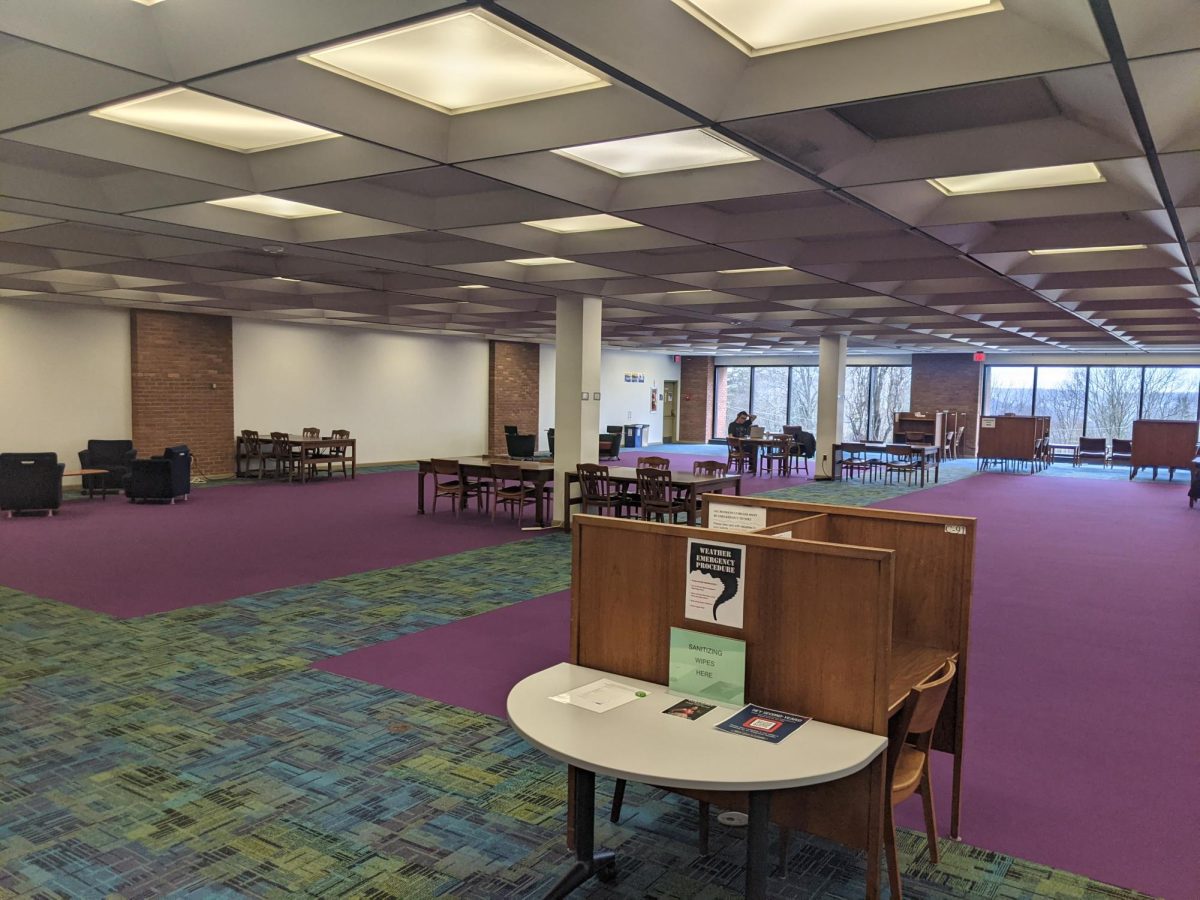New information has come to light regarding the death of a first-year student in mid-September.
Cinna Krushel, 19, of New York, died in the intensive care unit of Meadville Medical Center on Sept. 21, two days after being found unresponsive in her room in Schultz Hall. Last week, county investigators ruled Krushel’s death accidental.
According to a copy of the county’s 911 dispatch logs on Sept. 19, obtained by The Campus via a Right-to-Know request, dispatchers could not immediately contact Allegheny’s Office of Public Safety as the situation unfolded.
The incident was reported with a 911 call at 9:39 p.m. and the first unit dispatched just over two minutes later at 9:42 p.m.
Included in the log is a “narrative” entry at 9:45 p.m, stating that dispatchers “attempted to contact Allegheny campus police several times – with no answer.” The entry adds that the Meadville Police Department was called after campus police did not answer.
In an email statement to The Campus, Dean for the Student Experience Ian Binnington wrote that, “there was no delay” in Public Safety’s response.
“Public Safety arrived at Schultz Hall at approximately 9:45 pm, the same time as EMS,” the statement read. “An officer was at the door and let the EMS crew into the building.”
According to the call log, the first unit — with the Meadville Fire Department — arrived on scene at 9:46 p.m., one minute after dispatchers logged Public Safety’s non-responsiveness and seven minutes after the 911 call.
The logs list paramedics as taking Krushel to the hospital at 10:09 p.m., arriving at the Meadville Medical Center at 10:12 p.m. She died two days later.
In his statement, Binnington wrote that Allegheny’s officers heard of the incident over the radio.
“While the 911 dispatch and Public Safety dispatch did not speak directly due to phone line issues outside of Allegheny’s control, Public Safety was immediately aware of the emergency due to our team having access to multiple radio frequencies including, but not limited to, Meadville City Police and Crawford County Police Central,” the statement read.
Greg Beveridge, director of the Crawford County Department of Public Safety, confirmed that dispatchers were eventually able to connect with Allegheny’s Public Safety during the Sept. 19 incident.
“Once contact was established with the (Allegheny) Public Safety department, the incident information was relayed to them,” Beveridge wrote in an email last week. “Most often, incidents that occur on known college properties, if the call does not originate from the (Allegheny) Public Safety department, the 911 center will notify Public Safety of the incident.”
He added that Allegheny’s Public Safety team is a “significant resource” able to assist first responders and provide contact information for students.
“Generally, when our agency needs to contact Allegheny it is usually a quick process,” Beverdige wrote.
Binnington added, “We have also ensured that 911 and local first responders have multiple contact numbers for Public Safety including an analogue line and a cell phone in addition to the dispatch number.”
Public Safety’s response times have been the focus of discussions at the Allegheny Student Government’s General Assembly on Sept. 26. At the meeting, Co-Director of Student Affairs London Dejarnette, ’24, said they had heard student complaints on the topic.
“There’s been a lot of fire alarms going off recently, and it seems that there is an increasing problem with the speed in which Public Safety comes — even if they do come,” Dejarnette said at the time.
Dejarnette said during the meeting that Public Safety would take up to half an hour to respond to fire alarms in the North Village Complex.
The reality, Binnington wrote in his statement that, according to Public Safety’s data, the office’s response to fire alarms has averaged under two-and-a-half minutes over the last 10 months.
“This calendar year, the average response time from the time a fire alarm is activated to an officer arriving on scene is 2.3 minutes for the 204 instances that have occurred,” Binnington wrote. “When responding to fire alarms, Public Safety first goes to the fire alarm panel in the building to determine the exact location of the alarm and then goes to that location to identify the cause of the alarm. If that location is determined to be safe, the officer will either have the dispatcher silence the alarm remotely or return to the panel to do so … Officers may have minimal interaction with students with responding to an alarm depending on the circumstances.”
Crawford County Coroner Scott Schell also announced the results of Krushel’s autopsy. Schell concluded that Krushel died of an overdose of several over-the-counter substances, the Meadville Tribune reported on Friday, Oct. 27. Schell ruled the death accidental
In Krushel’s system were caffeine; antihistamines, used in allergy medicine; synthetic codeine, a pain-relieving ingredient in adult cough syrup; and mitragynine, the active ingredient in a pain-relieving plant called “kratom.”
A plant in the coffee family, kratom is used by 1.7 million Americans to self-treat conditions ranging from diarrhea, mental health disorders, and opioid withdrawal, according to the Food and Drug Administration. Neither the plant nor mitragynine are FDA-approved in any capacity, though it is available to purchase online and in stores, the agency states on its website.
“There was no note or communication from her prior (to her death),” Schell told the Tribune. “All of the items are available over the counter. None of it is fatal by itself, but the combination of it all together (and interacting) may cause seizures or cardiac arrest.”
Schell did not return a call from The Campus made to his office for comment.
In response to the finding, the college sent an email to the campus community sharing resources on how to interact with medicines and supplements.
“Her (Krushel’s) parents do not want another family to experience a similar tragic loss and have asked the College to remind students of the impact that seemingly safe drugs can have on a person when they interact with other substances, including prescription and over-the-counter drugs,” the email stated





